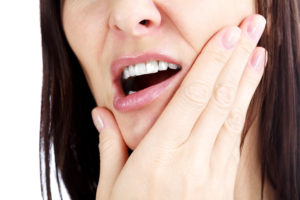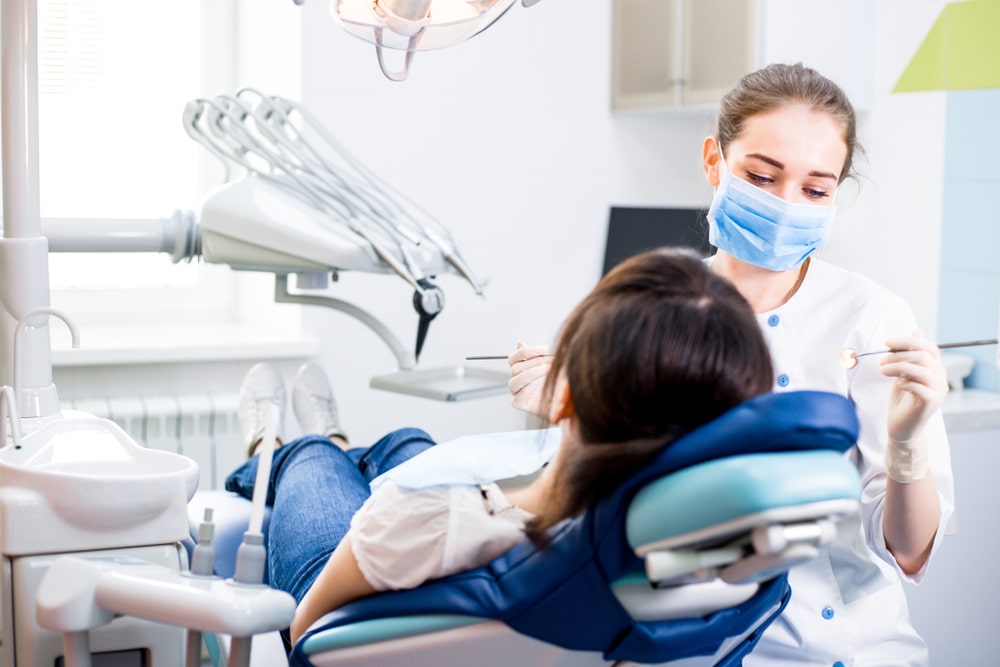If you’ve ever woken up to frequent or recurring jaw pain or headaches, but don’t know why, you could be suffering from bruxism, or grinding your teeth. But before you stop reading because you’re sure this isn’t about you because you don’t grind your teeth, don’t be so sure. A 2005 study conducted by Children’s Hospital in Boston MA estimated that 8% of adults grind their teeth at night, but this number could be much higher, because most teeth grinders, or ‘bruxers’, don’t even realize they’re doing it! So, how can you tell if you grind your teeth- and why is it so bad for you?
Teeth grinding can be a difficult problem to self-diagnose- especially if you do it in your sleep. In fact, even if you grind your teeth when you’re awake, it can still be difficult to ‘catch yourself in the act,’ especially if you are grinding your teeth due to stress and aren’t focusing on what your mouth is doing. The best way to tell if you’re grinding your teeth is at your dental exam. You may or may not already suspect something is up if you’re experiencing jaw soreness, headaches, or TMJ disorder, but a dentist can tell quite easily if you’ve been grinding your teeth based on the wear to the teeth themselves. Some chronic bruxers may have excessive wear on their teeth, broken or cracked fillings, and even broken or cracked teeth. These are all things your dentist will be able to see based on a simple exam to your mouth- and by comparing x-rays from your last visit if possible.
Other signs you may be a bruxer include a clicking or popping sound when you open and close your jaw, indents around the edges of your tongue caused by your teeth that may resemble scalloping, ear aches, and increased tooth sensitivity to hot or cold foods.
So, what can you do to stop yourself? Well, if you catch yourself grinding your teeth, stop! Unfortunately, it’s not always as easy as that, though- because teeth grinding is an unconscious behavior. But to lower your risk of grinding your teeth whether you’re aware of it or not, it is recommended that you keep your jaw in the proper position so that it is not as easy to grind your teeth if you are stressed.
To do this, keep your lips closed, but your teeth apart and your tongue resting on the backs of your teeth. If you catch yourself grinding your teeth, immediately put your mouth into this position and hold it there. If that doesn’t work, speak to your dentist about getting a custom-fitting bite guard that while it won’t eliminate tooth grinding, it will protect your teeth from the pressure of grinding by cushioning some of the pressure. A good quality bite guard can be a big investment and may not be covered by your dental insurance, but it will may spare you a lot of dental problems in the future. Many bite guard models resemble invisible braces trays and can be worn both in the evening and during the day. You can still speak while wearing them- but you do need to remove them to eat.
Another helpful albeit unconventional method for quitting teeth grinding is hypnosis. Yes, you read that right! According to Colgate, a study by the Bruxism Association in Reigate, UK found that patients who underwent hypnosis to curb their teeth grinding actually noticed positive long-term results! Hypnosis is becoming a respected tool in psychology circles because unlike the old stereotype of the magician and the pocket watch, it is actually a very useful tool which allows patients to reach a level of relaxation not unlike meditation. Once in a hypnotic state, the therapist can address the patient’s unconscious mind, the same part of your brain triggering the teeth grinding in the first place.
For those looking to reduce their risk of teeth grinding, you can also try cutting back your caffeine and alcohol consumption and quit smoking if you do smoke. It is also recommended that bruxers not chew gum, crunch ice, or bite their nails because this can exacerbate the pain caused by grinding- and subconsciously encourage you to grind your teeth more frequently. Patients who take certain anti-depressants containing SSRI’s are also at a higher risk of teeth grinding, so if you take one of these medications, be extra vigilant and speak to your dentist if you believe your SSRI may be causing you to grind your teeth.
If you’re still unsure if you grind your teeth or if you have questions about TMJ disorders give Dr. George a call at 724-934-3422. She and her staff will help you discover the source of pain and fix it!




